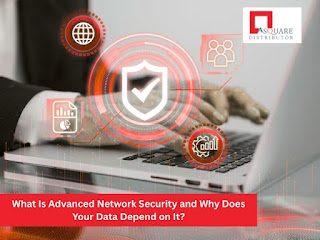The Ultimate Guide to Solar Panel Installation: Benefits, Process, and Cost Savings
Solar energy is transforming how we power our homes and businesses. With rising energy costs and a growing focus on sustainability, solar panel installation has become a practical and eco-friendly choice. In this guide, we’ll explore the benefits of solar energy, the installation process, cost factors, and tips to maximize efficiency.
What Are Solar Panels?
Solar panels, also known as photovoltaic (PV) panels, convert sunlight into electricity. They are typically made from silicon cells that absorb sunlight and generate direct current (DC), which is then converted to alternating current (AC) for home and business use.
Benefits of Solar Panel Installation
1. Reduced Electricity Bills
By generating your own electricity, you can significantly reduce monthly energy costs. Solar panels allow you to produce energy during the day, reducing reliance on the grid.
2. Environmentally Friendly
Solar energy is renewable and reduces carbon emissions. Unlike fossil fuels, it doesn’t pollute the air or water, helping combat climate change.
3. Energy Independence
Generating your own electricity means you’re less affected by rising energy costs and grid outages. Solar battery storage can further enhance independence.
4. Increased Property Value
Homes and businesses with solar panels are more attractive to buyers, often leading to higher resale values.
5. Incentives and Tax Benefits
Many governments offer tax credits, rebates, and incentives to encourage solar adoption, making the upfront cost more manageable.
The Solar Panel Installation Process
1. Assessment and Planning
A solar provider evaluates your property, roof orientation, shading, and energy needs. They design a system tailored to your requirements.
2. Permitting and Approval
Local authorities may require permits for installation. Your solar provider often handles this to ensure compliance.
3. Installation
Panels are mounted on your roof or a ground-based structure. Wiring is connected to your electrical system and inverter.
4. Inspection and Connection
After installation, a safety inspection is performed. Once approved, your system is connected to the grid or battery storage.
5. Monitoring and Maintenance
Solar panels require minimal maintenance. Cleaning the panels occasionally and monitoring energy output ensures maximum efficiency.
Cost of Solar Panel Installation
Factors Affecting Cost:
-
Number of panels needed
-
Panel type and efficiency
-
Installation complexity
-
Incentives and rebates
Although the upfront cost may seem high, the long-term savings on electricity bills, combined with incentives, often make solar energy a cost-effective investment.
Tips to Maximize Solar Efficiency
-
Optimize Panel Placement – Ensure panels face the sun without obstruction.
-
Use Energy-Efficient Appliances – Reduce energy consumption to complement solar power.
-
Invest in Battery Storage – Store excess energy for nighttime or cloudy days.
-
Regular Cleaning – Dust and debris can reduce panel efficiency.
-
Monitor Performance – Use apps or monitoring systems to track output and detect issues early.
Common Myths About Solar Panels
-
“Solar Panels Don’t Work in Cloudy Areas” – Even indirect sunlight generates electricity, though efficiency may vary.
-
“They Require Constant Maintenance” – Solar panels are low-maintenance, usually only requiring occasional cleaning.
-
“Solar Panels Are Too Expensive” – Costs have dropped dramatically in recent years, and incentives further reduce expenses.
Future of Solar Energy
Advancements in solar technology, such as bifacial panels, smart inverters, and solar tracking systems, continue to improve efficiency and accessibility. As renewable energy adoption grows, solar panels are expected to become a standard feature in residential and commercial properties worldwide.
Conclusion
Solar panel installation is more than just a trend; it’s an investment in financial savings, environmental sustainability, and energy independence. By understanding the benefits, installation process, and maintenance requirements, you can make an informed decision about adopting solar energy for your home or business.




Comments
Post a Comment